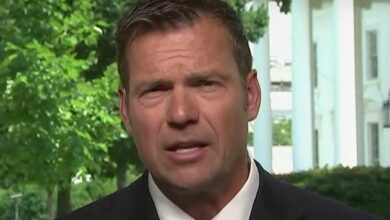Report: China’s Communist Party funding liberal think tanks
An influential Washington DC newspaper has published today a stunning report exposing how China’s Communist Party is covertly influencing American politics by funding leading democrat and liberal think tanks.

The Washington Free Beacon reports that influence operations are conducted by the United Front Work Department, a Central Committee organ that employs tens of thousands of operatives who seek to use both overt and covert operations to promote Communist Party policies.
The Party’s United Front strategy includes paying several Washington think tanks with the goal influencing their actions and adopting positions that support Beijing’s policies.
“The [Chinese Communist Party] has sought to influence academic discourse on China and in certain instances has infringed upon—and potentially criminally violated—rights to freedoms of speech and association that are guaranteed to Americans and those protected by U.S. laws,” the report says.
“Despite the CCP’s candid discussion of its United Front strategy, the breadth and depth of this issue remain relatively unknown to U.S. policymakers.”
The report said the Johns Hopkins School of Advance International Studies, a major foreign policy education and analysis institute used by current House and Senate democrats and by former President Barack Obama, has received funding from Tung Chee-hwa, a vice chairman of the Chinese People’s Political Consultative Conference, the party group that directs the United Front Work Department and includes a member of the Politburo Standing Committee, the collective dictatorship that rules China.
In addition to Johns Hopkins, other think tanks linked to China and influential in American policy circles include the Brookings Institution, Atlantic Council, Center for American Progress, EastWest Institute, former President Jimmy Carter’s Carter Center, and the Carnegie Endowment for International Peace.
Many of the socialist candidates elected in this month’s Democrat primaries have relied on these organizations for policy guidance as they put together their campaign platforms.
The Exchange Foundation is tied to Chinese government influence operations and uses the same public relations firm as the Chinese embassy.
A spokesman for the liberal Center for American Progress (CAP) said the center has received no money from China. CAP cooperated with the U.S.-China Exchange Foundation in producing a joint report in 2014 but received no financial contribution from CUSEF.
According to the commission report, CUSEF “spent hundreds of thousands of dollars lobbying for ‘China-U.S. relations’ as a registered foreign agent.”
China’s goal in funding think tanks is to attempt to change debates on China without Beijing having to use its own voice.
China Commission member Larry Wortzel, a former military intelligence officer once posted to China, said the report is important for exposing the activities of the United Front Work Department and the China People’s Political Consultative Conference.
“Most Americans and many members of Congress have no idea of the range of activities undertaken by this Chinese Communist Party web,” Wortzel said. “It is a form of activity by Communist parties that dates back to the days of Lenin.”
Sen. Ted Cruz (R., Texas) has said the collusion between American groups and United Front Work Department operatives is the Chinese party using Americans to “unwittingly promote CCP ideology” in a “countering voice” in debates over China.
“Beijing seeks to outsource its messaging in part because it believes foreigners are more likely to accept propaganda if it appears to come from non-Chinese sources,” the report said.
According to the report, Chinese President Xi Jinping has elevated the role of the communist influence organs to promote Chinese communism worldwide.
Xi regards United Front work as a “magic weapon” for use in what he has called the rejuvenation of China.
Since becoming Party general secretary in 2012, Xi has added 40,000 more people to the ranks of the United Front Work Department, and added new departments.
“The goal of ‘overseas Chinese work’ is to use ethnic, cultural, economic, or political ties to mobilize sympathetic overseas Chinese communities—ideally of their own accord—to advocate for the interests of the CCP and marginalize its opponents,” the report said.
“Chinese intelligence services have been known to coerce overseas Chinese to function as operatives targeting other overseas Chinese in both the United States and other countries, indicating that these agencies actively participate in overseas Chinese work that seeks to hide official connections.”
Congress is considering legislation that would require all organizations that promote the political agendas of foreign governments to register as foreign agents, and would require universities to disclose certain donations and gifts from foreign sources.
The White House this week denounced China’s interference in El Salvador, which switched diplomatic recognition from Taipei to Beijing.
“The United States will continue to oppose China’s destabilization of the cross-strait relationship and political interference in the Western Hemisphere,” Press Secretary Sarah Sanders said.
The commission report was produced by Alexander Bowe, a policy analyst specializing in security and foreign affairs.






